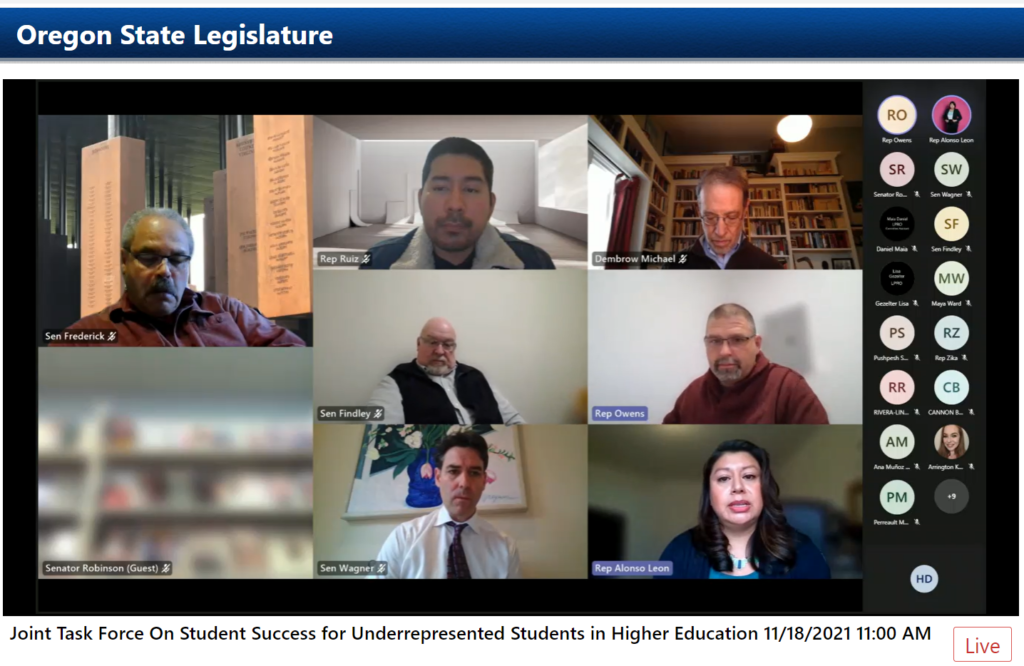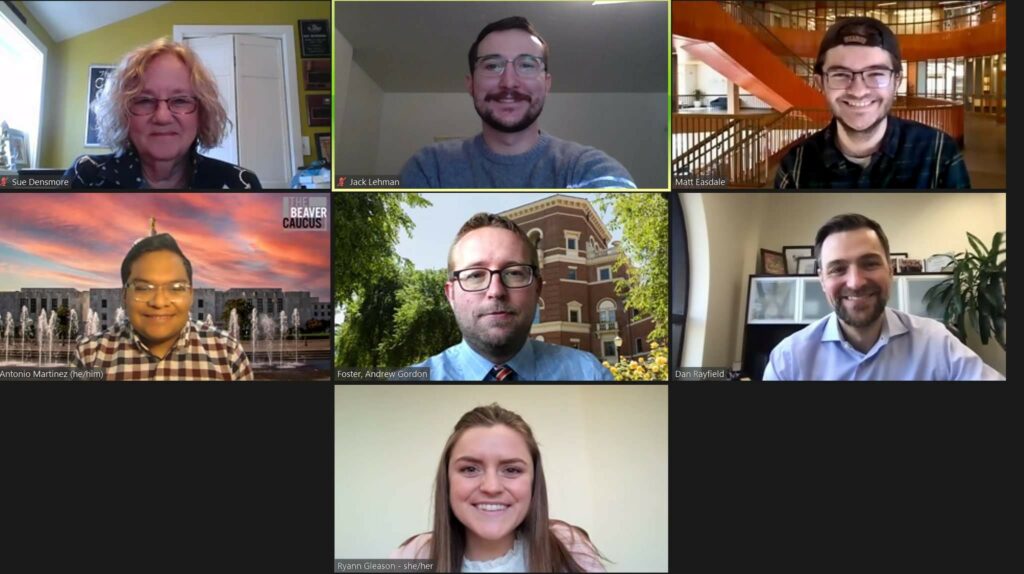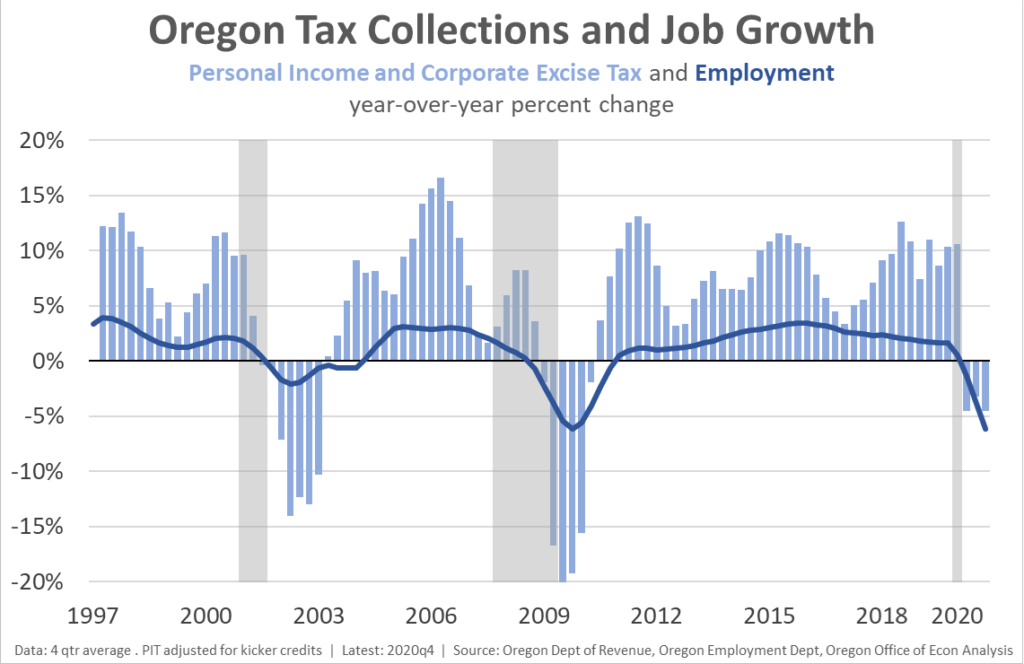Oregon’s 2022 short legislative session started off with unusual settings. Since the adjournment of the 2021 legislation, nine legislators have either resigned or passed away; bringing in a new crop of legislature midterm. Additionally besides the Senate President and Senate Majority Leader, every leadership office had changed. Finally with this being an election year, there are several seated legislators vying for upper elected office. These developments changed the working dynamics and priorities of the body.
The legislature started with an unprecedented amount of funding. While this created opportunities to make statewide investments, including rural, housing, drought and climate adaptation and workforce development packages, this also created a challenge for the Ways & Means leadership, as there were few constraints on funding requests. Since this revenue is not predicted to rollover into future bienniums at the same rate, most funding decisions were limited to one-time investments and not for longer term programing.
Operationally, the Oregon State Capitol remained open for session, but a majority of legislators conducted their office meetings virtually and all committee hearings took place remotely.
Overall, this was a positive session for Oregon State, who benefited by some capital investments and productive policy bills.
Capital Investments
House Bill 5202-1 |Budget Reconciliation
- $7.5 million for reauthorization of Strong Start programming in 2022 (spread across the seven public universities)
- $19 million to the Higher Education Coordinating Committee for a statewide Tribal student grant program
- $10 million for the Innovation District at OSU Cascades
- $6.5 million for a new housing project at the Hatfield Marine Science Center
- $1 million to OSU Extension for the Oregon Bee Project and pesticide programing
- $350k for maintenance and repair of the research vessel Pacific Storm
- $250k for improvements at the Eastern Oregon Agricultural Research Center’s Union Station
House Bill 5701-3 | Bond Authorization
- $30 million to deferred maintenance funds across the seven public universities
Policy Bills
Senate Bill 1505 | Name, Image, & Likeness
- Mandates royalty payments to student athletes by producers of jerseys, video games and trading cards utilizing said student athlete’s name, image or likeness. Also, clarifies that students participating in university programs to assist student athletes with their name, image & likeness business development are not athlete agents.
Senate Bill 1522 | Senate Education Omnibus Bill
- Allows high school teacher who is employed by education service district to serve on Transfer Council
- Removes exemption of distance learning courses from in-state tuition provisions for military veterans. Exempts individuals who are granted humanitarian parole, asylum, conditional permanent residency, or temporary protected status from nonresident tuition and fees at public universities.
- Adds public universities and community colleges to list of employers that must provide full-time teachers and school nurses with information regarding the Public Service Loan Forgiveness program.
- Creates exemption from requirement for education providers to provide menstrual products in student bathrooms for early childhood care and learning providers and in environments for which requirements may pose a threat to student health and safety.
Senate Bill 1545 | Workforce Investment
- Authorizes a $200 million investment focused on workforce opportunities related to manufacturing, healthcare, and technology.
Senate Bill 1546 | Elliot State Research Forest
- Establishes the Elliot State Research Forest with the mission of creating an enduring, world-class research forest. Oregon State University College of Forestry will contract with the state to manage the forest with an interconnected research platform.
House Bill 4030 | Education Workforce
- Provides funding to help school districts recruit and retain school employees, streamlines licensing requirements for teachers and creates a statewide clearinghouse for education jobs.
House Bill 4055 | Harvest Tax
- Reinstates portions of the Harvest Tax that fund programing at the College of Foresting. ¢90 tax per thousand square feet of timber harvested in Oregon will go toward the Forest Research Lab and ¢21 toward the Education Fund.
House Bill 4092 | Updates the Oregon Broadband Advisory Council
- Updates the membership of the Oregon Broadband Advisory Council and directs the development of a state broadband strategic plan.
Statewides CSL Ask
While there were some individual investments in Extension programing and Experiment Station improvement projects, OSU did not receive the $2.2 million requested to maintain current service levels for the OSU Statewides. We will be working collaboratively with internal and external stakeholders to remedy this funding gap during the 2023 long session.




